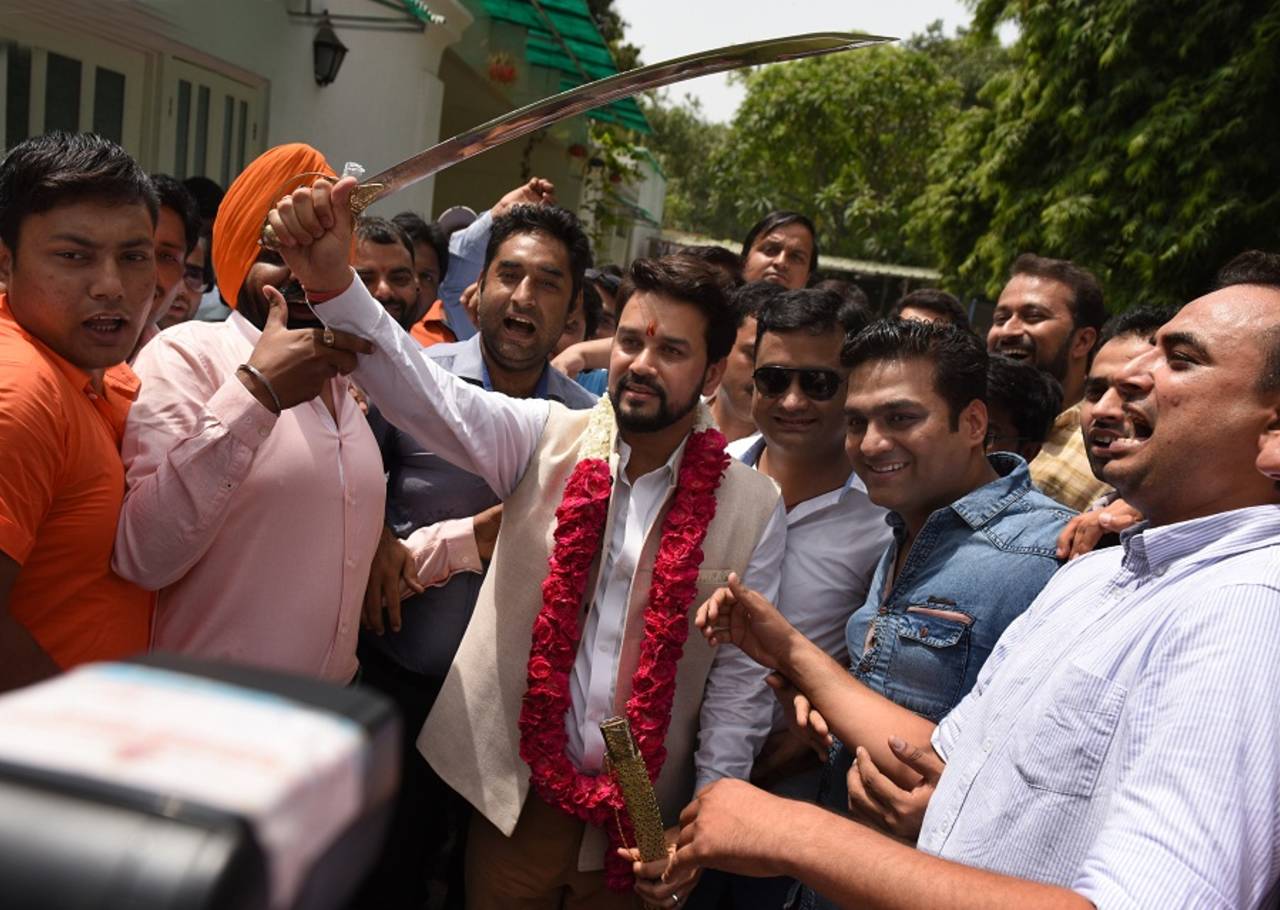One state, one member, one vote
The impact: 1) This recommendation reduces at least four existing associations from being full members of the BCCI to associates. At present, state associations of Maharashtra, Mumbai and Vidarbha - each functioning independently in the state of Maharashtra - and Gujarat, Baroda and Saurashtra - each functioning independently in the state of Gujarat - have one vote each in the BCCI elections. The Lodha Committee proposed that the six votes be reduced to two, one each from each state, with one association representing the state at the BCCI on rotational basis for a period of one year.
The states' objections: The legal counsels of the different states and the BCCI lawyer contested that not only did the six members of Maharashtra and Gujarat represent a definite geographical territory and field teams, but they also contributed to the development of the game in their respective regions. It was argued that having one member represent the entire state was "fraught with difficulty and ignored the historical perspective."
Court's response: The rotational arrangement would give each association a right to a full member's vote when its turn came around, without violating the broader principle of 'one state one vote' recommended by the committee. Such a system would also respect the history of these associations, their role in the promotion the game and the formation of the BCCI. These state bodies can continue to field teams in domestic tournaments, and the BCCI will decide the order in which the full membership rotates among the associations.
2) The Lodha committee also recommended that five full members of the BCCI - Railways Sports Promotion Board, Association of Indian Universities, Services Sports Control Board, National Cricket Club (Kolkata) and Cricket Club of India (Mumbai) - be relegated to associate status.
The five clubs defence: Even if the five clubs did not represent any state and two of them - NCC and CCI - were recreational bodies that did not even field first- class teams - they should continue as full members keeping in view the historical background leading to the formation of BCCI.
Court's response: The relegation of these five clubs to associate membership is meant to support the structural streamlining of the BCCI to make it more responsive and accountable, at the same time providing for an equal opportunity for different regions to participate in the growth and promotion of the game in the country
Age limit of 70 for office bearers
BCCI and states' objections: Citing the example of veteran administrator Niranjan Shah, who has served as secretary at the Saurashtra Cricket Association for the past four decades, the court was told that setting an upper age limit was not "reasonable" and "conducive" for the growth of the game. Lawyers for both BCCI and states argued that age had nothing to do with the administrative capacity of the person.
Court response: It stated that cricketers usually played the game between the age of 18 and 35 and that after retirement anyone who had the potential to contribute to the game could do so for over three decades until the age of 70. The upper age limit recommended by the Lodha Committee was not, therefore, unreasonable or irrational. The Court also stated that the Indian Government's National Sports Development Code of India, 2011, had stipulated that primary office bearers - President, Secretary and the Treasurer - of recognised National Sports Federation including the Indian Olympic Association (IOA) had an age cap of 70 years. The Court said that the upper age limit of 70 was not an unusual or unacceptable norm.
Ministers and civil servants cannot be administrators
BCCI and states' objections: Because of their experience, ministers and government officials, the BCCI said, were "able" administrators at both the central and state level and such a recommendation would hurt the efficiency of the board and the growth of the game.
The court's response: The game would be better managed, promoted and developed if politicians and civil servants, who occupy positions of responsibility in the government that call for their complete attention and commitment, were made ineligible from holding any post in state associations or the BCCI. The court also said it did not believe that the game flourished due to a minister or civil servant holding a cricket office. Nor did they believe the game would be denied its due without ministers or civil servants at the helm.
Office bearers cannot hold posts at BCCI and state level
BCCI's objections: It argued that the experience gained by administrators at state level could be useful when the official doubles up in a role at the board level.
Court's response: It said that one person could not be allowed to hold both a state and BCCI post because of conflict of interest issues. The court said that presidents and secretaries of state associations existed to discharge functions with the primary interest of the state in mind; as BCCI office bearers, they are expected to subordinate regional interests to a larger national interest. The court said the existence of dual roles meant that officials often appointed their fellow state officials to key posts in the BCCI and created "an imbalance," and that the Lodha report on the matter was far from "irrational."
Nagraj Gollapudi is a senior assistant editor at ESPNcricinfo
